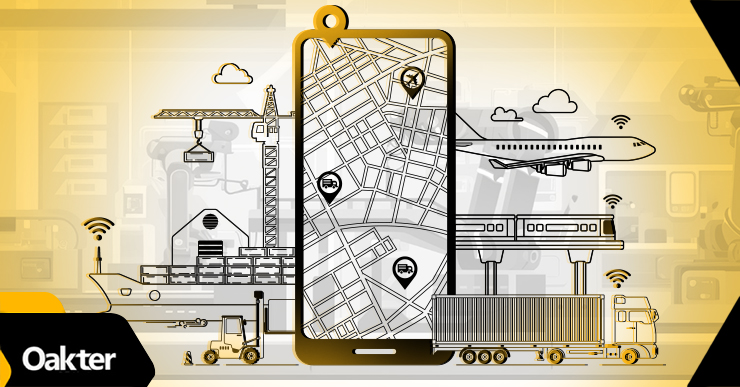
Navigating Growth: Industries Transformed by GPS Manufacturers
The Global Positioning System (GPS) has emerged as a game-changer in a world where precision and accuracy are paramount. GPS is a satellite-based radio navigation system that provides geolocation and time information to users anywhere on or near the Earth.
In this article, we will delve into the historical evolution of GPS technology, explore how GPS manufacturers have transformed various industries with their innovative products and services, and discuss emerging challenges and future trends.
Historical Perspective of GPS Technology
The origin of GPS technology can be traced back to the Sputnik era when scientists were able to track the satellite’s orbit using the Doppler effect. In the 1960s, the U.S. Navy conducted satellite navigation experiments to track submarines carrying nuclear missiles.
In the 1970s, the U.S. Department of Defense initiated the NAVSTAR GPS program, which aimed to create a global navigation system using a constellation of satellites and ground stations. The first GPS satellite was launched in 1978, and the system became fully operational in 1993 with 24 satellites in orbit.
Since then, GPS technology has undergone several upgrades and modernisations, such as adding new signals, improving accuracy, and enhancing interoperability with other satellite navigation systems.
Today, GPS is a multi-use, space-based radio navigation system owned by the U.S. government and operated by the U.S. Space Force. It provides reliable positioning, navigation, and timing services to users around the world free of charge.
7 Industries That GPS Manufacturers Have Transformed

GPS manufacturers have played a vital role in developing and providing GPS products and services that have transformed various industries.
Here are some examples of how GPS manufacturers have impacted different sectors with their innovations:
1. Automotive Industry: Revolutionising Navigation
The automotive industry has witnessed a navigation revolution with GPS systems integrated into vehicles. This transformation has significantly enhanced driving experiences and safety. GPS navigation systems provide real-time guidance, reducing the chances of getting lost and improving road safety.
Furthermore, the seamless integration of GPS technology with autonomous vehicles is paving the way for the future of transportation, promising a world where vehicles navigate and communicate with unprecedented precision and efficiency.
2. Logistics and Transportation: Optimising Efficiency
GPS manufacturers have optimised the efficiency of logistics and transportation by providing GPS tracking systems that enable real-time monitoring and management of fleets, vehicles, cargo, and personnel.
GPS tracking systems use devices installed on vehicles or assets to transmit their location data to a central server or a mobile app via cellular or satellite networks. They can also provide data on speed, mileage, fuel level, engine status, driver behaviour, and more.
3. Agriculture: Precision Farming with GPS
GPS manufacturers have brought positive outcomes in agriculture by enabling precision farming, which is a method that uses data-driven techniques to optimise crop production and resource management.
Precision farming extensively leverages GPS and other technologies such as sensors, drones, satellite imagery, and software to collect and analyse data on soil conditions, crop health, weather patterns, pests, and diseases.
Precision farming can also use GPS-guided equipment such as tractors, sprayers, and harvesters to perform tasks such as planting, fertilising, irrigating, and harvesting efficiently.
4. Aviation: Enhancing Safety and Navigation
The aviation industry has witnessed a profound transformation with the integration of GPS technology. GPS in aviation navigation has revolutionised the way aircraft navigate the skies. It plays a pivotal role in improving air traffic management, reducing congestion, and enhancing overall safety.
GPS-based approaches and landings have become the standard, providing precise guidance to pilots during critical phases of flight. This technology has not only made air travel more efficient but has also significantly reduced the risk of accidents, making it a cornerstone of modern aviation.
5. Construction and Engineering: Precision in Building
In the construction and engineering sectors, GPS has also ushered in a new era of precision and efficiency. GPS-guided construction equipment allows for unparalleled accuracy in site planning and layout. This technology ensures that buildings and infrastructure are constructed exactly according to design specifications.
Furthermore, GPS is instrumental in monitoring construction progress and project management. It enables real-time tracking of equipment and materials, optimising resource allocation and reducing costly errors. Because of GPS, the construction and engineering industries are experiencing enhanced productivity, cost savings, and improved project outcomes.
6. Mining and Resource Exploration: Precise Resource Management
In the world of mining and resource exploration, GPS manufacturers have ushered in a new era of precise resource management. Mining operations leverage GPS for accurate positioning and efficient resource extraction, leading to reduced waste and increased productivity.
Moreover, GPS-guided processes help mitigate the environmental impact of mining, making resource management more sustainable and responsible.
7. Public Safety and Emergency Services: Rapid Response and Rescue
For public safety and emergency services, GPS has become a lifeline. It plays a critical role in emergency vehicle navigation, ensuring swift responses to crises. GPS technology aids in locating 911 calls with pinpoint accuracy, allowing for the rapid dispatch of resources to those in need. Search and rescue operations benefit tremendously from GPS, improving both efficiency and outcomes during critical situations.
Exploring the Challenges and Future Trends
While GPS manufacturers have transformed various industries with their innovative products and services, they also face some challenges and opportunities in the future.
Some of the emerging technologies that may influence GPS are:
1. Emerging Technology Impact
GPS faces competition from emerging systems like Galileo and BeiDou, raising questions about its future reliability and market position.
2. Privacy and Security
The increasing use of GPS raises concerns about data misuse and system vulnerabilities, necessitating robust cybersecurity measures.
3. Future GPS Impact
GPS will become more accurate and integral to industries like autonomous vehicles and smart cities, demanding adaptation to ethical standards while harnessing its benefits.
Oakter: Your GPS Automation Solution
GPS manufacturers have irrevocably altered numerous industries, enhancing safety, efficiency, and precision across the board.
As we look to the future, the evolution of GPS technology shows no signs of slowing down. Staying updated with these advancements is crucial for businesses and individuals alike.
And if you need automation solutions for GPS manufacturing that are reliable and cutting-edge, Oakter has what you’re looking for. We are an advanced Indian ODM with extensive experience across multiple industries, shipping 500k+ products each month.
Contact us now to be a part of the transformative journey led by GPS technology!

